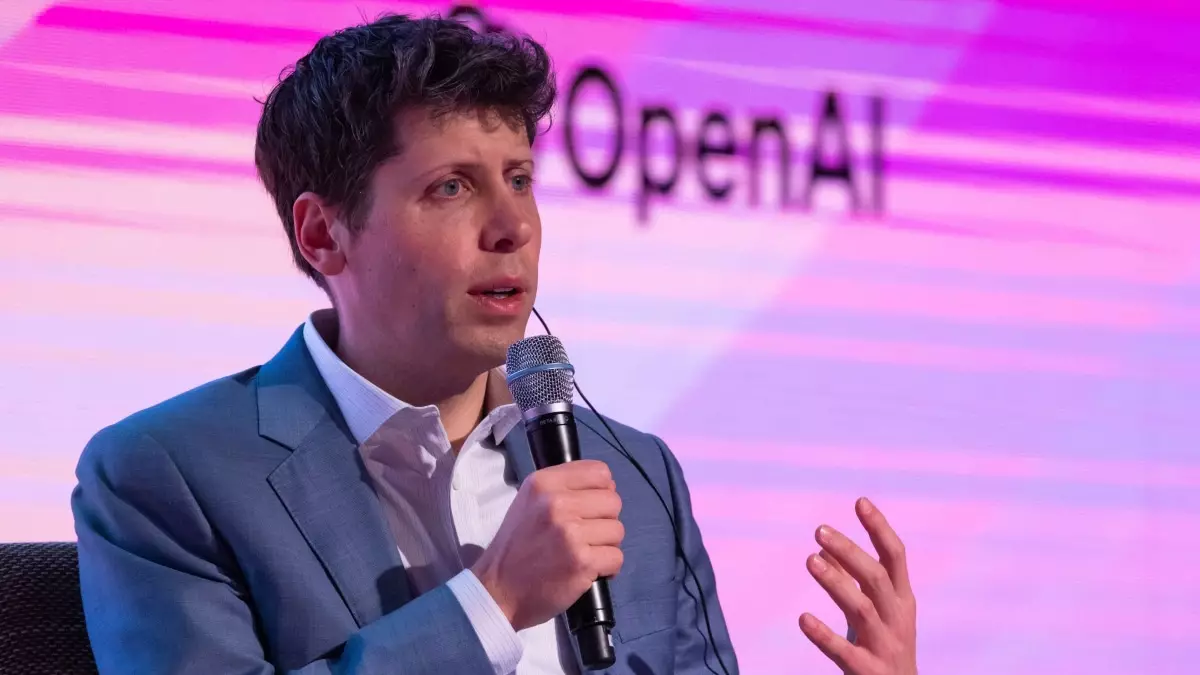In what is shaping up to be a monumental legal confrontation, a federal judge has set the stage for a trial in March that pits Elon Musk against Sam Altman over OpenAI’s transformative initiatives. The tension between Musk, the erratic billionaire known for his ambitious ventures, and Altman, the steadfast defender of AI ethics within OpenAI, feels charged with the magnitude of their stakes. U.S. District Judge Yvonne Gonzalez Rogers from California has opted to fast-track this dispute, putting a firm trial date on the calendar for March 16, 2024, instead of allowing it to stretch on indefinitely into 2027.
This swift movement comes after Musk’s previous requests to halt OpenAI’s transition from a nonprofit to a for-profit entity were denied. Judge Gonzalez has taken a sobering approach by demanding clarity on Musk’s assertions that OpenAI’s restructuring is unlawful, which ostensibly speaks to the heart of this evolving narrative. Musk, who has made headlines for launching his own AI company, xAI, sees himself as a protector of the original mission of OpenAI—aimed at democratizing artificial intelligence.
The Philosophical Divide
What begins as a legal duel encapsulates a deeper ideological battle over the future of artificial intelligence. Musk’s vision seemingly harkens back to OpenAI’s original ethos of being a charitable organization, while Altman’s strategy appears increasingly focused on monetization—fueled by necessity and market realities. The core of Musk’s argument rests upon the contention that the influx of capital from major corporate backers, such as Microsoft, represents a betrayal of the ideals that birthed OpenAI. Yet, what truly looms over this debate is the question: Should AI development necessarily operate under the constraints of altruism, or can it exist within a profit-driven framework?
A vital point to ponder here is whether Altman’s approach to seeking vast capital investment hastens the ability of OpenAI to achieve its goals. Musk claims that the acceptance of corporate funding betrays their altruistic intent; however, in a world increasingly dominated by economic pressures, is it reasonable to expect a non-profit to continue solely on goodwill? The brilliance of innovation often springs from the fertile soil of financial backing, and OpenAI’s meteoric rise is demonstrative of that principle.
The Broader Implications for the Tech Industry
The fallout is not confined to the individual interests of the billionaires involved. OpenAI has recently confirmed a staggering $40 billion funding round led by SoftBank, which propels its valuation to an astronomical $300 billion. This kind of financial clout will inevitably reshape not only the AI landscape but also set precedence for how tech startups navigate the balance between their missions and financial objectives. Should anyone launch an AI venture today, the implications of this trial could serve as either cautionary tales or ambitious blueprints.
In fact, if OpenAI succeeds in its restructuring, the implications could extend far beyond Altman and Musk. This could signal a definitive shift in the tech industry where ethical boundaries blur further amidst financial motivations. The multi-billion-dollar stakes make it unmistakably clear that the outcomes of this trial could shape potential regulations or even inspire new narratives about corporate responsibility in an era dominated by artificial intelligence.
Positive Dissent and Contesting Narratives
Amidst this power struggle, the narrative that Musk is trying to “undermine a successful competitor” also merits scrutiny. OpenAI’s legal arguments suggest that Musk’s lawsuit stems from a place of personal vendetta rather than genuine concern for AI’s ethical future. This perspective raises pertinent questions about the nature of competition in tech and the ethics surrounding it. Are we witnessing a battle for the soul of what AI could be? Or merely a self-serving power play by a billionaire who feels ousted?
The truth is that Musk, in his bid for dominance via xAI and control over the social media platform X, might not be entirely wrong in feeling that the stakes have shifted against him. His camp speaks to an emerging anxiety over losing control of narratives within the rapidly evolving domain of artificial intelligence. Yet, his efforts seem paradoxically driven by both concern and ambition, raising complex questions about motives in a domain that deserves rigorous ethical foresight.
As March approaches, one cannot help but wonder how this battle will conclude. Will it end with victory for Musk and his return to influence, or will it herald a new chapter for OpenAI that solidifies its place in a profit-seeking paradigm? The outcome could redefine more than just the trajectories of two powerful men; it could act as a litmus test for the broader tech industry and its role in shaping our future.

